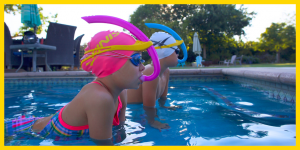Andrew Gemmell, SwimingWorld
November 5, 2019
Andrew Gemmell’s Red Flag To FINA: Athlete Safety In Focus
It is “only a matter of time until we have another tragedy that will do more to diminish the stature of the sport than any amount of ‘complaining’ might do” if FINA’s leadership fails to step in and stop open water events going ahead in conditions that break rules designed to ensure athlete safety.
That’s the stark view of Andrew Gemmell, former USA teammate, friend and fellow athlete-safety advocate of Fran Crippen, who lost his life in a 2010 FINA World Cup race off the coast of the United Arab Emirates.
Two inquiries highlighted serious failures that contributed to Fran Crippen’s death, including poor organisation, a woeful lack of vigilance and a failure of the guardians of the sport to understand the physiological risks posed by asking world-class athletes to race at peak speed in hot waters over 32C on a blisteringly hot day. And that where the rule was: no finish, no series earnings.
In an open water season that has highlighted rule-breaking by event organisers and serious ongoing concerns over safety in open water swimming, Swimming World turned to Gemmell for his view on the situation.
In a considered and timely response in a week in which the International Olympic Committee moved the Tokyo 2020 Olympic marathon for runners and walkers 500 miles north of the Japanese capital on safety grounds but left swimmers facing hot water, Gemmell said:
“It is beyond frustrating seeing the same issues with water temperature and athlete safety continuing to be a problem within open water swimming. A sport this physically and mentally demanding requires an environment that allows the athletes to put their full focus on their race, and not on their safety. The list of major international races that have had to be moved (or should have been moved) or cancelled in the last 8 years is distressingly high.”
Gemmell, a 5km Team World champion, marathon World silver medallist on the podium with Fran Crippen at Rome 2009 and a Pan Pacific marathon champion for the USA,
makes a direct appeal to FINA’s leadership and experts when he adds:
“FINA needs to be a leader in setting the bar of what is required to host an elite open water race, and providing the resources, knowledge, and expertise to local organizing committees to make sure those standards are upheld. Unfortunately, FINA has fallen short in that area.”
He notes that FINA has held some of its biggest events in safe waters under fine organisation in recent years but highlights organisations that “are either not getting, or choosing to ignore, what it takes to host a successful and safe race. It seems to be a case of local politics taking precedent over common sense and the athletes’ best interest.”
THE BACKGROUND

Fran Crippen – Photo Courtesy: Fran Crippen Elevation Foundation
One medical expert involved in subsequent post-autopsy inquiry set out precisely how the critical function of sweating would have been prevented in the conditions imposed on swimmers in the fateful FINA race on October 23, 2010. Several other swimmers were hospitalised on a day when there was an acute lack of vigilance of athletes out on the course. USA Swimming had no official observer nor coach attending the event with its swimmers.
FINA adopted an upper water-temperature limit of 31C in the wake of Fran Crippen’s death but some member federations have set domestic upper-temperature limits lower than the international standard over concerns that 31C is still far too hot for racing in over 10km at world-class pace. A 50m sprinter races in conditions that cannot exceed 28C.
Against a backdrop of concerns over conditions that open water swimmers will face at the Tokyo 2020 Olympic Games next year, the IOC has forced Tokyo to move the Marathon for runners and walkers 500 miles north of the Japanese capital to Sapporo on Hokkaido Island. The decision was taken after IOC members were shocked by the images of marathon runners struggling in the heat at the World Athletics Championships in Doha, Qatar, last month.
Doha also hosted the World Beach Games organised by the Association of National Olympic Committees (ANOC) in October but the conditions were risky enough for continents from the United States and Canada to withdraw, citing risks to health and welfare. The race went ahead in conditions that some witnesses said included water temperatures of between 31.9 and 32.8C during a 5km race. FINA observers registered a temperature of 30.9C at 4am, the witnesses claimed, and allowed the race to proceed on that basis.
Read the full article here
Recent Articles
Dylan Carter
Chelsea Hodges
Lorenzo Zazzeri

Introducing the Stability Snorkel Jr
Share on Social Media


